In 2023 the European Union (EU) launched the Euroclima Programme, a renewed version of what has been the EU's flagship climate program in Latin America for more than a decade.
The Programme has extended is reach, to include 16 Caribbean countries expanding the Euroclima family to 33 countries across the wider Latin America and Caribbean (LAC) region. It also strategically covers all levels of the EU and LAC long-standing relation, by implementing flexible and tailored actions involving a broader range of thematic and stakeholders´ scopes from both sides of the Atlantic.
This expanded reach is in keeping with the new ambitious EU-Caribbean Partnership under the Global Gateway strategy launched by the European Union and 16 Caribbean Ministries in October 2022. The Caribbean region continues to be an important partner for the EU and its Member States. Both regions are united by common values and priorities, as well as the commitment to address global challenges such as climate change, sustainable management of natural resources, and the achievement of the Sustainable Development Goals. This new partnership now frames the sub- regional relationship with a focus on the common goals between the two regions as articulated in the EU Green Deal.
Euroclima now welcomes the United Nations Development Program (UNDP) as a new Implementing Agency (IA) that along with AFD/Expertise France and GIZ, will continue to support climate action in the Caribbean. AECID, ECLAC, FIIAPP and UNEP complete the list of IAs of Euroclima in the region.
The new Programme (2023- 2028) will support the Caribbean countries in increasing resilience to climate change in ecosystems and in particular for vulnerable communities, including women, youth and indigenous populations and in its path towards a green transition. To support this vision, special attention will be given to circular economy and climate finance.
In the context of the Women's History Month last March and under the hashtag #KnowYourWorthLadies, Euroclima celebrated the contributions that Caribbean women are making to Climate Action through various ongoing initiatives: Caribe Circular, ClimSAProgramme, ClimateHealthAction, Enhancing the Climate Resilience in CARIFORUM countries Programme and BioSpace Project.
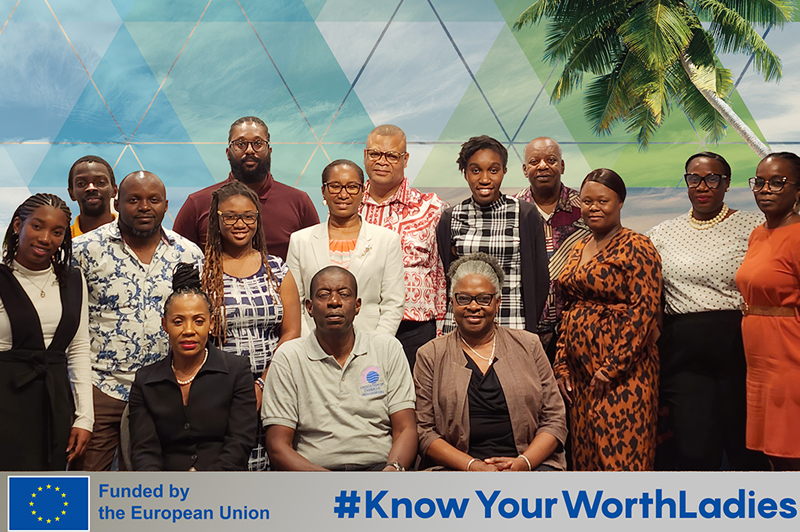
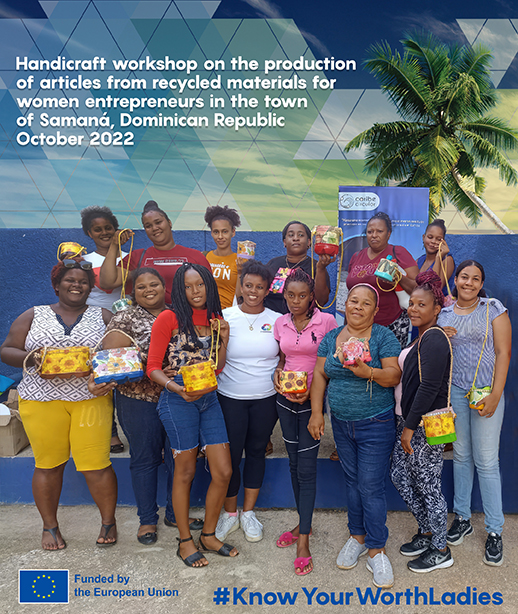 Handicraft workshop on the production of articles from recycled materials for women entrepreneurs in the town of Samaná, Dominican Republic - October 2022
Handicraft workshop on the production of articles from recycled materials for women entrepreneurs in the town of Samaná, Dominican Republic - October 2022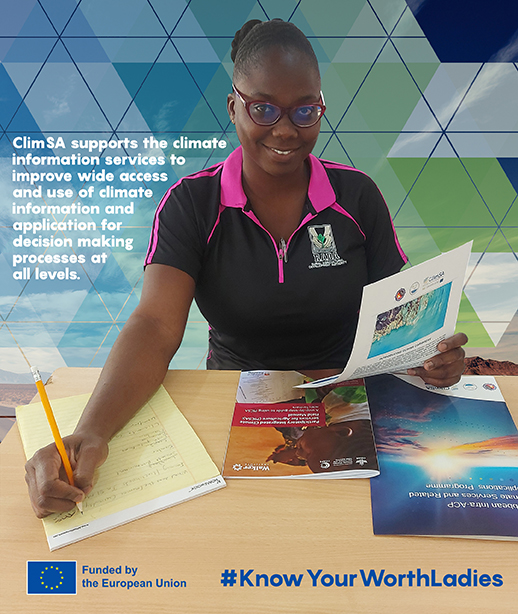 ClimSA supports the climate information services value chain to improve wide access and use of climate information and application for decision making processes at all levels.
ClimSA supports the climate information services value chain to improve wide access and use of climate information and application for decision making processes at all levels.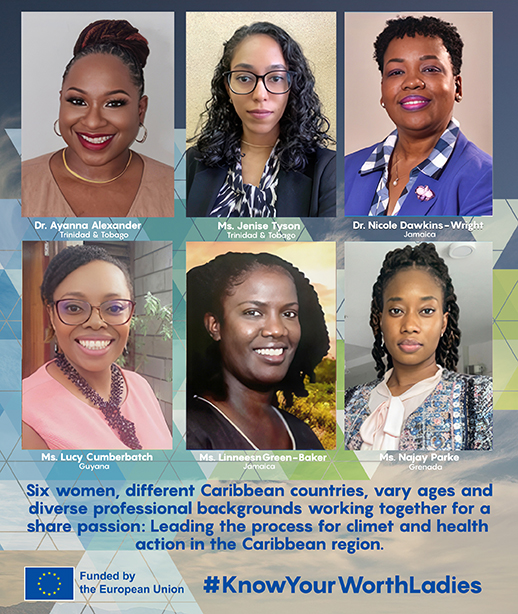 Six women from different generations and Caribbean countries and diverse professional backgrounds working together for a shared passion: increasing the Caribbean resilience to the effect of climate on health.
Six women from different generations and Caribbean countries and diverse professional backgrounds working together for a shared passion: increasing the Caribbean resilience to the effect of climate on health.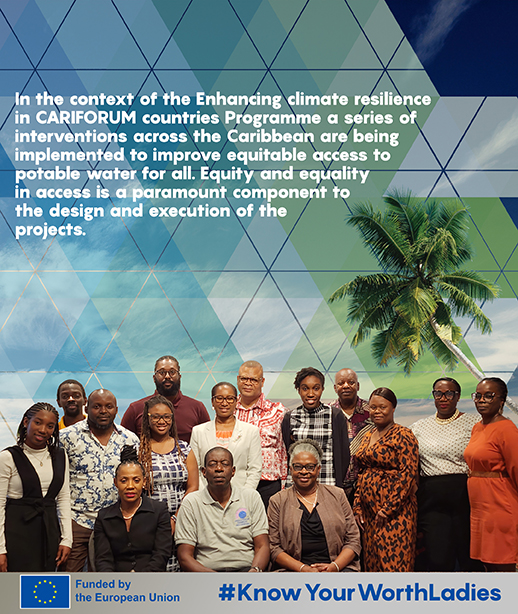
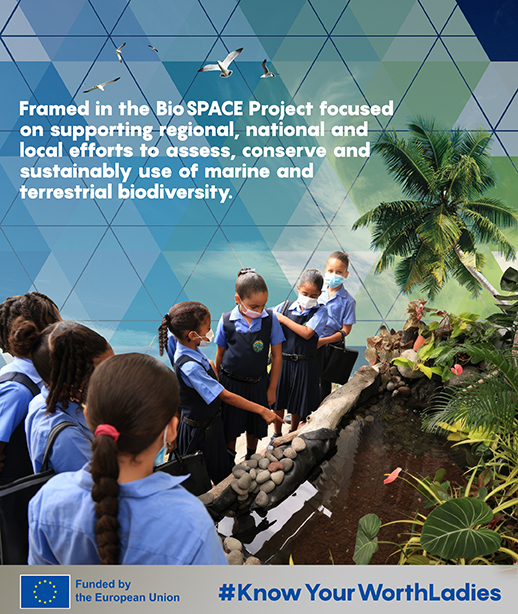 In the context of the 9th Council of Ministers for Environmental Sustainability held in St. Vincent and the Grenadines in 2022, there was an exhibition on marine and terrestrial resources and climate change, targeting mainly Caribbean girls.
In the context of the 9th Council of Ministers for Environmental Sustainability held in St. Vincent and the Grenadines in 2022, there was an exhibition on marine and terrestrial resources and climate change, targeting mainly Caribbean girls.